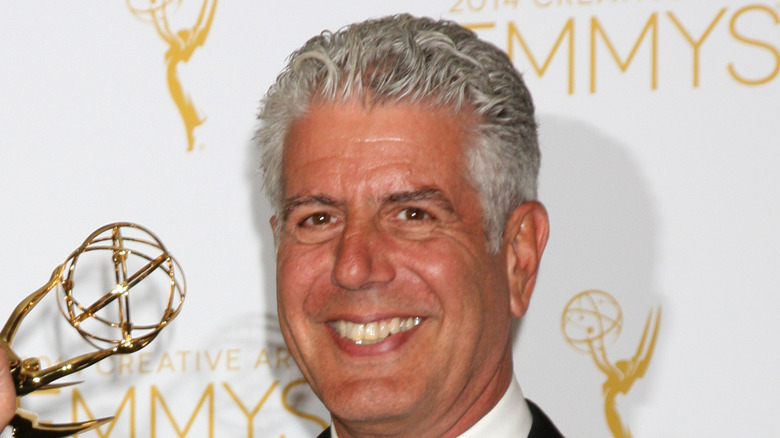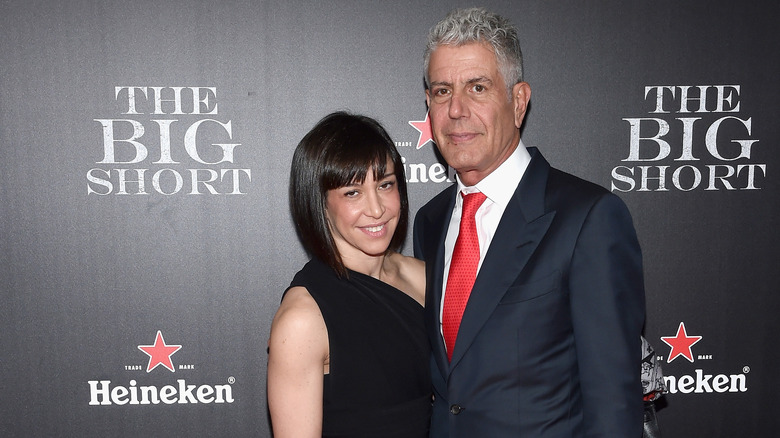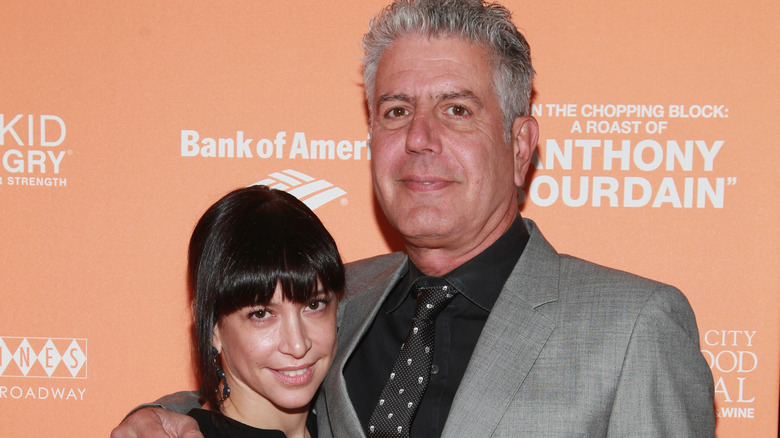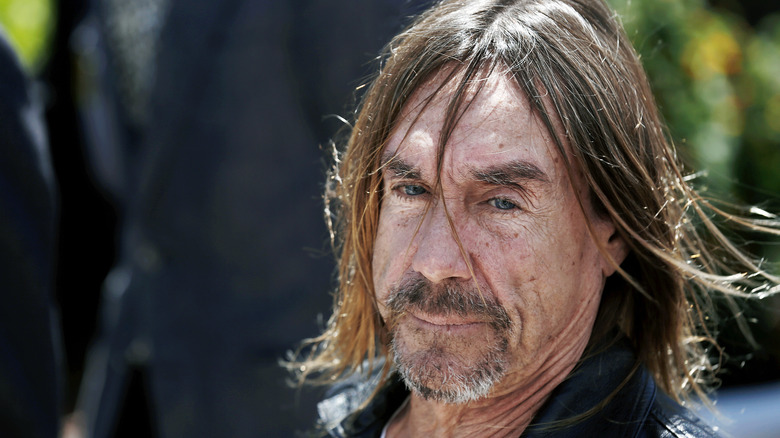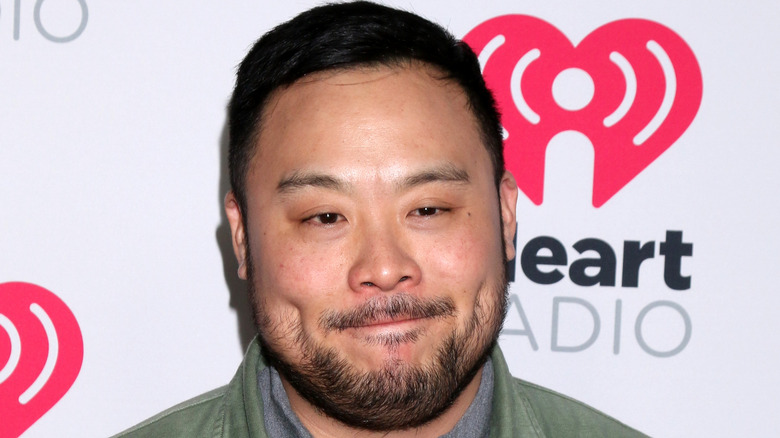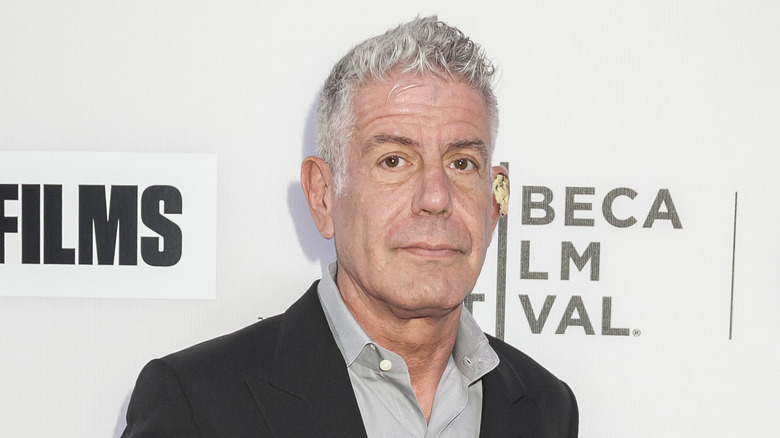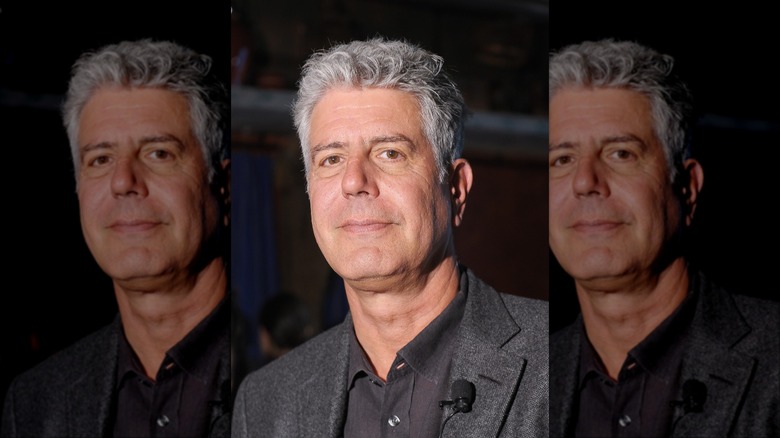Surprising Things We Learned About Anthony Bourdain In Roadrunner
Anthony Bourdain was an icon to many and beloved for his award-winning television shows. But there are many unexpected qualities to the mysterious man so many felt a connection to. In "Roadrunner," a new documentary by director Morgan Neville, fans learn so much more about Bourdain through interviews conducted with his friends and family just 16 months after his suicide in 2018. Thankfully, Mashed was able to watch the film, which premiered on Friday, July 16, and even interview Neville.
What many outsiders and fans of Bourdain's life and career learned throughout the documentary is certainly eye-opening, and largely contradictory to what so many believed about him based on his outward personality. From the way Bourdain felt inside and how he expressed himself to those close to him, to the emotions he struggled with the most and how he accepted family life, the film sheds light on so much about what the writer's life was like. These are the surprising things we learned about Anthony Bourdain in "Roadrunner."
Anthony Bourdain was incredibly shy
The man everyone knew by his tall, lanky strut and confident bravado was actually hiding a huge secret about his personality. According to those who knew him best, who were interviewed in "Roadrunner," Bourdain was incredibly shy. He was purportedly so shy, according to the documentary, that his original producers actually thought his television series would flop. Going out and walking along the streets to meet people and talk with them was Bourdain's magic, but it was far from something he wanted to do initially. Instead, he would remain quiet and the incredible thoughts and insights into his destinations were lost at first. Fortunately, Bourdain learned quickly and pushed himself to rise to the occasion.
Even later, he apparently never wanted to be in a social situation without someone he knew. "When he would be in public situations, he would always tell his friends, 'You can't leave my side and I, I need somebody to be there with me,' because at the same time, he was one of the great raconteurs and one of the funniest people ever, so I just didn't see that coming, that he was really that kind of shy inside," Neville told Mashed.
But what started out as an inclination to be shy, later grew and morphed into something much bigger.
Anthony Bourdain loved being a father
Given the things Bourdain said and did on his television shows, fans might have really wondered what he could have been like as a family man and father. Though fatherhood was not something he necessarily wanted for himself or thought about prior to becoming a dad, the documentary showed us that he absolutely loved his daughter and being a part of her life. In "Roadrunner," it was clear that Bourdain's daughter emulated him in his career and clearly looked up to her dad. And just as she admired and loved him, he adored her.
Whenever Bourdain had been away, he was always very intent on being present when he was home with his daughter. In "Roadrunner," he even explained that the domestic vision of grilling hot dogs in the backyard and playing with his daughter wasn't something he could have imagined for himself, but when it did happen, it was the happiest he'd ever been. Despite his love for his daughter and their bond, though, he couldn't get over the feeling of needing to travel too.
Anthony Bourdain felt that he couldn't accept love
It's hard to imagine that someone who was so loved by friends, family, and fans could feel that he couldn't accept love. In "Roadrunner," it's said that Bourdain could give love in a relationship until it almost smothered the other person and ultimately drove them away. However, he never could accept love from others. It's almost as if he were trying to make up for the inability by going overboard in showering others with his admiration. Even his fans, he couldn't see the genuine love they have for him because he felt guilty, and as though he were getting away with something in his career.
In the documentary, Bourdain sits at a diner with Iggy Pop and asks the musician what still gives him a thrill. When Pop says that giving and receiving love is the greatest thing he has in his life, Bourdain looks almost lost, or as though he can't imagine that emotional exchange. It's a painful realization — one of many within the powerful film.
He had a lifelong addictive personality
It's no secret that Bourdain was a heroin addict. However, he kicked his drug habit without any kind of help or aid, according to an interview in the documentary from one of Bourdain's closest friends, artist David Choe. But that didn't mean that his addictive-prone personality changed. Instead, it is revealed in "Roadrunner" that Bourdain simply adopted new addictions throughout his life. He was obsessive about practicing jujitsu, which actually started with his former wife Ottavia Busia taking classes in order to protect their daughter. Bourdain's greatest addictions, however, were other people and his relationship with them. He became obsessed with his last girlfriend, Asia Argento and went well above and beyond to take up her cause and defend her when she spoke out as a victim against Harvey Weinstein.
Even Bourdain's friend, Momofuku chef David Chang, pointed out in the film that his favorite song was always "Anemone" by The Brian Jonestown Massacre, which Chang described as "heroin music." Chang implied that the song was a downer and that Bourdain couldn't get enough of it.
Anthony Bourdain was borderline agoraphobic
One of the most heartbreaking and surprising realizations to occur in "Roadrunner" is the progression from Bourdain's earliest days of travel to his last days when he was all but agoraphobic. Bourdain's friends and original producers explained that he was an avid reader and film buff. He had dreamed of so many destinations and was so excited to see how they measured up to what he had read and seen in movies. Bourdain had a hunger to see the world up close and learn from others along the way. However, by the final days of his life, Bourdain's friends told a very different story in the documentary.
According to the film, he would always want to stay in at his friends' places rather than go out. He wanted to avoid being around people, and clearly hated losing his anonymity. Bourdain had lost the ability to go anywhere without people knowing or recognizing him, which he hated. So his solution was to isolate himself as much as possible, and stay home.
Yet when he was around fans, he had an uncanny ability to be gracious and kind because he saw it as part of his job which he felt he didn't deserve, according to Neville. "I kind of feel like [his previous] shyness later became related to the kind of agoraphobia he had later, that he was not somebody who actually loved to be in the street talking to strangers, but he would always do it," Neville explained in his interview with Mashed.
Anthony Bourdain hated being thought of as a television personality
For many fans, it might be surprising to learn that of all things, Bourdain didn't like being thought of in the way that most of his fans would have described him. "He actually didn't really like to be called a chef, or TV personality, he hated it," Neville told Mashed.Instead, he always thought of himself as a writer, according to interviews revealed in "Roadrunner."
The achievements he was most proud of were his books, and Bourdain spent many years giving a lot of careful thought to writing as a craft, according to Neville. "I actually read some short stories he wrote in college, and he wrote three mystery novels. He wrote a lot and he was really good at it. So in a way, I think that was the thing that he was always proudest of, and something I was trying to kind of channel as much as I could in what we were doing," Neville explained.
It was, after all, his ability to write with such a clear voice that gave rise to his stardom, with "Kitchen Confidential." Without his affinity for words and storytelling, he would not have become the television host so many knew and loved.
